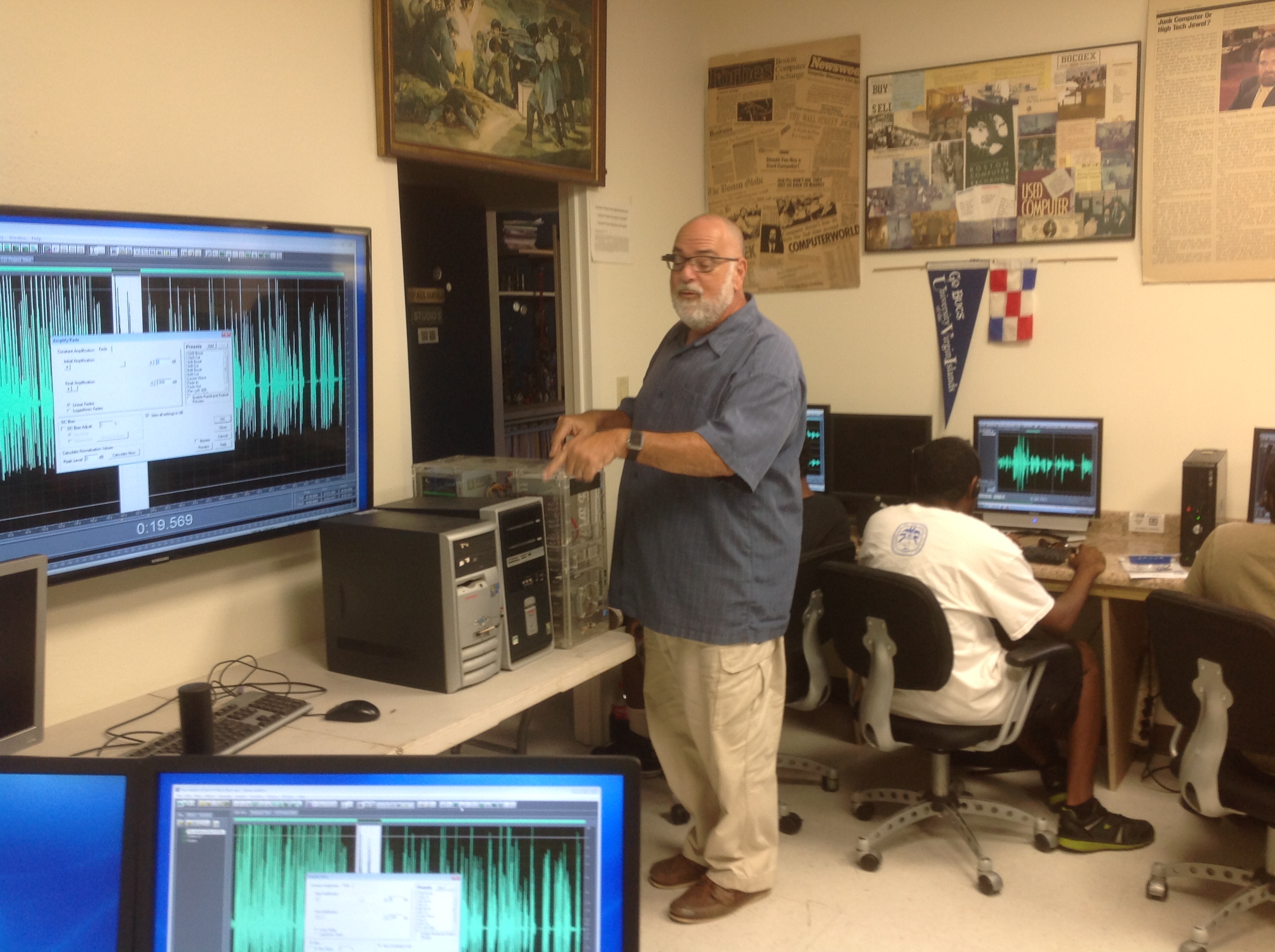Some of the projects that have been funded in whole or in part by the UVI Title III
and SAFRA programs , 2017-2022 Title III Part B Comprehensive Development Plan(CDP)
and the 2020-25 Part (CDP) include:
- UVI Center for Student Success - In October 1997, the UVI Freshman Center and Development Program began serving the
freshman population. Funded in part by Title III through its Comprehensive Freshman
Year Experience Program, the Center is designed to facilitate the students' transition
to college life. In 2006, the Freshman Center was transformed to the Campus Advising
and Tutorial Services (CATS) Center, which provides advising and tutorial services
for all students in need. CATS was later incorporated into the Center for Student Success-a unit that integrates the institutional initiatives and services to support student
retention, persistence and success.
-
Construction of the Music Suite in 1998 - Title III funds were added to a grant from the US Department of the Interior to provide
a state-of-the-art facility for music majors at the University, replacing the wing
of the metal hangar building that previously housed the Music Program, and which was
severely damaged by Hurricane Marilyn in 1995.
Title III funds were added to a grant from the US Department of the Interior to provide
a state-of-the-art facility for music majors at the University, replacing the wing
of the metal hangar building that previously housed the Music Program, and which was
severely damaged by Hurricane Marilyn in 1995.
-
Development of the Inter-campus communication system in 1997- This communication system benefits the University by delivering learning opportunities
between campuses and into the community. This decreases the University's costs for
expenses such as travel for inter-island conferences, and additional staff for lecture
classes on both islands.
-
Creation of Minors in Environmental Sciences and Health Sciences-Led by Dr. Paul Jobsis, this project created two new minors in Environmental Sciences
and Health Sciences during the 2012-17 Part B grant cycle. Students in a variety
of disciplines are now able to take courses that expose them to educational opportunities
that were previously unavailable at the University of the Virgin Islands, making their
degrees much more marketable in the workplace.
-
Advancing Learning Environments - Supported by funds from the SAFRA grant program, this project increased the number
of technology based classrooms at the University, increasing the number of technology-based
classrooms on both campuses from 49 to 80.
- St. John Academic Center-In early 2011, with support from the SAFRA grant program, UVI established its first
academic presence on the island of St. John. With classrooms in Cruz Bay that are
linked by video-conferencing technology to classes on St. Croix and St. Thomas, students
that reside on St. John are able to take several of their classes on that island,
thereby reducing the need to travel to St. Thomas.
-
 Teaching Radio Broadcasting – The College of Liberal Arts and Social Sciences (CLASS) expanded its broadcast
journalism offerings with Title III support for the creation of a student radio station—WUVI.
This on-air laboratory allows students to obtain hands-on experience in all aspects
of operating a radio station, providing skills that are transferrable to the workplace
after graduation.
Teaching Radio Broadcasting – The College of Liberal Arts and Social Sciences (CLASS) expanded its broadcast
journalism offerings with Title III support for the creation of a student radio station—WUVI.
This on-air laboratory allows students to obtain hands-on experience in all aspects
of operating a radio station, providing skills that are transferrable to the workplace
after graduation.
-
ESL (English as a Second Language) Undergraduate Endorsement- This project enhanced the undergraduate teacher education program in the School
of Education by including an ESL component in the form of a concentration to its elementary
education program. The project supported preparation for teachers' certification and
assisted the School of Education with the accreditation mandates recommended by the
Council for the Accreditation of Educator Preparation (CAEP).
- Capacity for Greatness- This activity includes renovating the library on the St. Croix campus, upgrading the
Enterprise Resource Planning system to the newest hardware and software platform,
and replicating systems in the Cloud to enhance accessibility and ensure faster post-disaster
recovery.
- Post Award Grant Capacity Enhancement- This proposal is intended to streamline and improve the post-award function at the
institution, thereby enhancing the institution’s ability to attract and effectively
utilize grant funds.
- Childhood Learning Laboratory- Housed within the School of Education, this project incorporates the development of
an on-campus after-school center that will provide a laboratory for elementary and
early childhood education pre-service teachers to apply cutting-edge educational research
methodologies.
- Institutionalizing Goal 2A of Pathways to Greatness- This activity is a student services project that seeks to increase retention, persistence,
graduation rates and student success through the realization of Goal 2A of the Strategic
Plan—Pathways to Greatness. This goal states: UVI will produce graduates who are academically excellent, globally sensitive, entrepreneurially
focused, emotionally and spiritually balanced, and willing to serve the world. It will incorporate self-actualization methodologies to enhance the probabilities
of success for students.
- Development of Fine Arts Department- This project will expand the College of Liberal Arts and Social Sciences to initiate
Bachelor of Fine Arts and Bachelor of Arts in Performing Arts majors.

 Title III funds were added to a grant from the US Department of the Interior to provide
a state-of-the-art facility for music majors at the University, replacing the wing
of the metal hangar building that previously housed the Music Program, and which was
severely damaged by Hurricane Marilyn in 1995.
Title III funds were added to a grant from the US Department of the Interior to provide
a state-of-the-art facility for music majors at the University, replacing the wing
of the metal hangar building that previously housed the Music Program, and which was
severely damaged by Hurricane Marilyn in 1995.